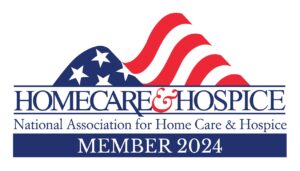Your Medical Team Will Ask About Them; Are You Prepared?
If you receive services from a home care agency or hospice near you, then it’s likely you and your loved ones have been deeply thinking about your health status in recent months. When you were in the hospital, the registrar likely asked you whether you have advanced directives. Your doctor may have asked, too.
And if you were unable to answer, “Yes,” then it’s time to create them now.
The concept of advanced directives can be hard to fully understand – and difficult for your loved ones to accept. But these important documents are absolutely necessary, particularly if you have a preference for how you receive end-of-life care from a hospice, hospital, or your physician.
What Are Advanced Directives?
Advanced directives are a collection of legal documents that explain your wishes about end-of-life care. This way, your family, friends, and healthcare team – including hospice, comprehensive disease management, or palliative care – will ensure you receive the care you want, without confusion.
The most common types of advanced directives are the durable power of attorney for health care and the living will.
It is wise to have completed advanced directives so you can provide copies to anyone who provides medical care or skilled nursing care to you, including your home health agency, doctor, hospice, or any hospital you’re admitted to as a patient.
Who Should Have Advanced Directives?
It is wise for all adults to create advanced directives, whether they are married, widowed, or divorced, and regardless of whether they have children.
In fact, in some states, like Missouri, state law requires that even married couples have advanced directives in order to allow their spouse to make medical decisions on their behalf when they cannot do it on their own. Otherwise, the decision automatically falls to next of kin, such as living parents, siblings, or children. Be sure to research your state’s requirements and contact your lawyer for more information.
What Do Advanced Directives Include?
Each element of your advanced directives covers different topics.
Your living will, for example, explains which treatments you wish to receive if you are dying or permanently unconscious. Many people’s living will includes whether they want tube feeding or a ventilator, and if they want to be resuscitated if they stop breathing or their heartbeat stops. You also can include in your living will whether you’d like to be an organ donor.
A durable power of attorney for healthcare, also sometimes called “medical power of attorney,” names someone you choose as your healthcare proxy. This is the person you trust to make health decisions for you only if you are unable to do so. They can make decisions for you about life support, grant (or rescind) permission for surgeries, talk to your home health agency about your progress, and more. Your healthcare proxy does not have to be related to you; you can list anyone you wish.
How Do I Prepare Advanced Directives?
When choosing your proxy, ensure they’re someone who you can trust. Think about the people in your life with whom you willingly share your health information, or those who you spend the most quality time with. Your proxy must be at least 18 years old, and cannot be your doctor, home health nurse, or an employee of the health care facility where you’re a resident or patient – unless you are related to them by blood or marriage.
Before you create your advanced directives, speak to your doctor or medical team; your family and other loved ones; and the person you’d like to have serve as your proxy. Explain your wishes with clarity, so they understand exactly what you want in the event you cannot make a healthcare decision on your own.
You can complete your advanced directives on your own, or you can work with a lawyer who specializes in wills and advanced directives to prepare the documents on your behalf. You and your proxy will be required to sign the paperwork.
Do I Provide Copies of My Advanced Directives to My Health Care Providers, Including Hospice and Comprehensive Disease Management Team?
Yes – provide a copy of your power of attorney for health care decisions and your living will to your medical providers, who will add them to your medical record. This ensures all physicians, facilities, and even home health or hospice team members who care for you are aware of your wishes.
Learn More About Home Care Options Near You
If you or your loved one needs in-home care, including hospice or comprehensive disease management (CDM), contact Phoenix Home Care & Hospice, serving Missouri, Kansas, and Illinois. We are committed to making your experience memorable and to meeting your needs with compassion and understanding. Please note our care teams cannot provide assistance with the creation of advanced directives.






